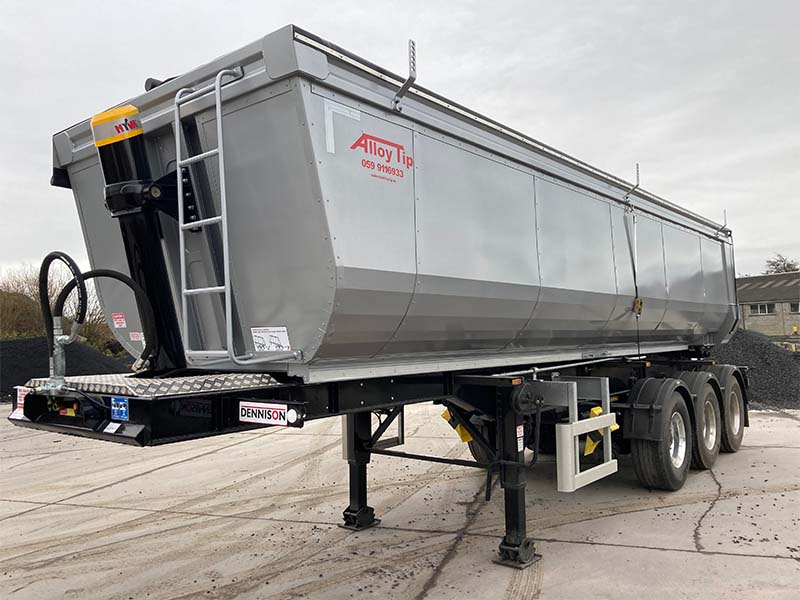In the world of truck bodies, steel has long been the go-to material. It’s known for its strength and durability. However, there is a growing trend among truck makers and fleet owners who are starting to see the benefits of aluminium as a viable alternative. When it comes to deciding which option is best, many are now favoring aluminium due to its increased workload capacity, fuel efficiency, and various other advantages.
Advantages
Corrosion resistance
One of the main advantages of aluminium truck bodies is their resistance to corrosion. Unlike steel, which requires a galvanic layer of zinc to protect against rust, aluminium naturally forms a protective oxide layer on its surface. This layer acts as a shield, preventing direct contact with air and moisture. As a result, aluminium truck bodies are far more resilient in saltwater-dense air environments.
Weight & Fuel Efficiency
In addition to corrosion resistance, aluminium bodies are also lighter than their steel counterparts. This lightweight nature puts less strain on the tires and fuel system, ultimately increasing the life expectancy of the engine and tires. Furthermore, the reduced weight of an aluminium body allows for better fuel efficiency, with aluminium-bodied trucks achieving eight to ten percent greater mileage per gallon than steel-bodied trucks. This translates to significant cost savings in terms of fuel consumption, maintenance, and tire wear, leading to greater productivity and a healthier bottom line.
Better for Environment
From an environmental standpoint, aluminium production is a more eco-friendly process compared to steel. The use of recycled materials and the absence of harmful chemicals make it a sustainable choice. Additionally, the production of aluminium helps reduce landfill waste, with recycled aluminium products making up a remarkable 85 percent of the total aluminium production. By choosing aluminium, truck manufacturers are not only creating efficient vehicles but also contributing to the global effort to minimize waste and conserve resources.
Heavier Payloads
While steel may be stronger than aluminium, the lighter weight of aluminium allows truck manufacturers to produce bodies with thicker gauges of aluminium, maintaining the strength advantage while still achieving a lighter overall weight. In fact, an aluminium truck body can be made with double the thickness of a steel body, yet still weigh less. This means that aluminium trucks can handle heavier payloads while remaining lighter, ultimately increasing their carrying capacity.
Reduced Maintenance
In terms of maintenance, aluminium truck bodies require significantly less upkeep compared to their steel counterparts. The natural oxide layer on aluminium surfaces provides excellent resistance to rust, making paint cracks purely aesthetic. On the other hand, steel truck bodies require ongoing maintenance to combat rust, even with paint and galvanized truck beds. Any cracks or damage in the paint or galvanized layer can quickly lead to rust formation and corrosion, necessitating immediate repairs.
While steel truck bodies have proven their reliability over the decades, the advantages of aluminium cannot be ignored. With lower maintenance requirements and superior fuel efficiency, owning and operating an aluminium-bodied truck can lead to substantial cost savings in the long run.
In conclusion, the benefits of aluminium truck bodies are clear. From corrosion resistance and durability to fuel efficiency and environmental friendliness, aluminium is proving to be a smart and cost-effective choice for truck makers and fleet owners. With its superior performance and lower maintenance needs, aluminium is revolutionizing the industry and paving the way for a more efficient and sustainable future.

